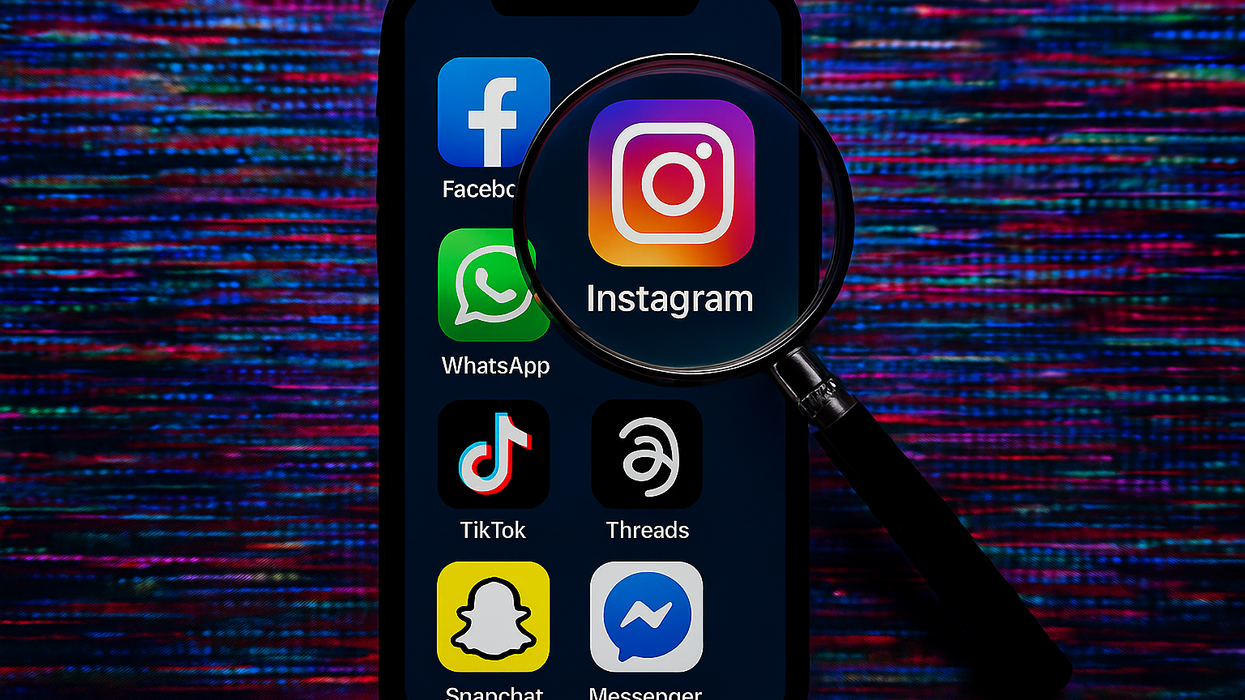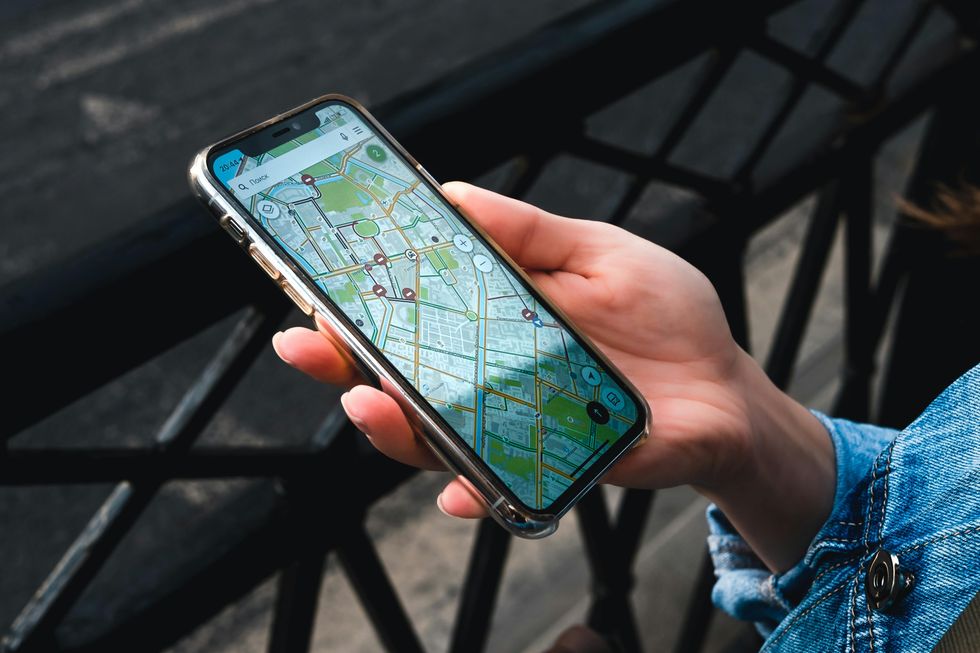The apps on YOUR phone that keep track of your exact location, and how to protect yourself

Surfshark reveals that social media platforms can see your exact location, with X, Meta, and Pinterest revealed as the biggest offenders
|SORA | GB NEWS
All products and promotions are independently selected by our experts. To help us provide free impartial advice, we will earn an affiliate commission if you buy something. Click here to learn more
Researchers named-and-shamed some of the biggest social media apps
- Experts at Surfshark published a list of platforms that track your exact location
- Its data shows X, Meta, and Pinterest are the biggest offenders
- GPS, Bluetooth signals, and IP addresses are all stored by the apps
- You can disable the ability to pinpoint your location on your phone
- Switching to one of the best VPN deals can distort your whereabouts
Don't Miss
Most Read
Some of the apps already installed on your iPhone or Android device could be keeping tabs on your exact location. And your whereabouts might be more exposed than you realise.
That's according to new research from the cybersecurity team at Surfshark, which reveals that X (formerly Twitter), Meta, and Pinterest are the most aggressive collectors of your precise geographical coordinates.
This isn't just about knowing which county or city you're currently in. These platforms want your exact position on the map— potentially pinpointing your home address or workplace.Yikes.
Investigators examined how 10 major social media applications handle location information. The findings suggest that your coordinates have become one of the most sought-after pieces of personal data.
- Do NOT use free VPNs, experts caution — these 5 cheap VPNs are safe, secure, affordable alternatives

More than half of the social media applications analysed gather precise location data for third-party advertising
|PEXELS
When these companies refer to a precise location, they mean the specific point where you're standing right now. This data gets collected through various methods, including GPS, Bluetooth signals, and IP addresses.
What makes X stand out is its transparency about one particularly concerning practice. The platform openly acknowledges that it uses your precise location for tracking purposes. This means your movements can be monitored continuously.
So, what's happening with this data?
Your location data might be merged with information from other applications and websites you visit. It could even end up with data brokers who sell such information to other businesses.
More than half of the social media applications analysed gather precise location data for third-party advertising. This explains why you might see adverts from companies you've never engaged with directly.

Your location history can also reveal deeply personal information, such as where you live, your place of work, etc.
|PEXELS
You might think switching off location sharing in your settings would solve the problem. Unfortunately, that's not always enough.
Companies, including Meta, TikTok, and Pinterest, state in their privacy policies that they can still work out your approximate location even when you've disabled precise location sharing. Although they don't specify how this is achieved.
"Precise location data falls under the most sensitive user data category because it can be linked to highly personal behaviour and routines," warns Donatas Budvytis, Surfshark's Chief Technology Officer.
Your location history can also reveal deeply personal information. For example, regular overnight stays at an address indicate where you live. Daily journeys might expose your workplace, potentially revealing salary information. Visits to medical facilities, places of worship or political gatherings become part of your digital profile.
Several platforms collect location data for vague "Other purposes" without providing clear explanations. X, Instagram, Threads, Facebook, and Pinterest all fall into this category, leaving users uncertain about how their coordinates might be used.
"If we are concerned about our privacy, we should keep an eye on which apps request access to precise location information," advises Mr. Budvytis. He recommends only granting precise location access when it's essential for an app's functionality.
You can take immediate steps to protect yourself. Disable GPS access for social media apps in your device settings, or limit it to "Only While Using the App".
To disable location sharing on iPhones, follow these steps:
- Open the Settings app
- Scroll down and tap Privacy & Security
- Select Location Services
- You’ll see a list of apps — find the social media app (e.g., Facebook, Instagram, TikTok)
- Tap the app → choose one of the following:
- Never → completely disables location access
- Ask next time or when I share → The app will ask before using the location
- While using the app, → app can only access the location when open
To disable location sharing on Android devices, follow these steps:
- Open the Settings app.
- Tap Location.
- Go to App permissions or App location permissions.
- Find and select the social media app (e.g., Facebook, Instagram, TikTok).
- Choose one of the options:
- Deny → completely blocks location access.
- Allow only while using the app → limits access.
- Ask every time → app must request location access each time.
Using a VPN provides additional protection by masking your IP address, preventing apps from determining your location through this method.
Surfshark VPN: Get 3 months for free + 86% off remaining subscription

If you're looking for the most affordable monthly VPN subscription, look no further than this Surfshark deal. For a limited time, it's slashed 86% off its monthly cost and coupled that discount with three months of free access. You'll need to sign up for a two-year plan to unlock this saying, but with a 30-day money-back guarantee and 24/7 customer service, there's no risk for new customers
VPNs work by creating an encrypted tunnel for all of your online traffic. When you activate a VPN, any data transmitted between your device and the website or online service is routed via the provider's servers.
The encryption scrambles your data into an unreadable format, preventing third parties from monitoring your activity. It stops advertisers, broadband providers, and Governments from checking what you've been up to online.










